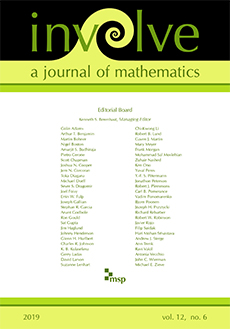Abstract
In referendum elections, voters are frequently required to register simultaneous yes/no votes on multiple proposals. The separability problem occurs when a voter’s preferred outcome on a proposal or set of proposals depends on the known or predicted outcomes of other proposals in the election. Here we investigate cost-consciousness as a potential cause of nonseparability. We develop a mathematical model of cost-consciousness, and we show that this model induces nonseparable preferences in all but the most extreme cases. We show that when outcome costs are distinct, cost-conscious electorates always exhibit both a weak Condorcet winner and a weak Condorcet loser. Finally, we show that preferences consistent with our model of cost-consciousness are rare in randomly generated electorates. We then discuss the implications of our work and suggest directions for further research.
Citation
Kyle Golenbiewski. Jonathan Hodge. Lisa Moats. "Cost-conscious voters in referendum elections." Involve 4 (2) 139 - 155, 2011. https://doi.org/10.2140/involve.2011.4.139
Information





